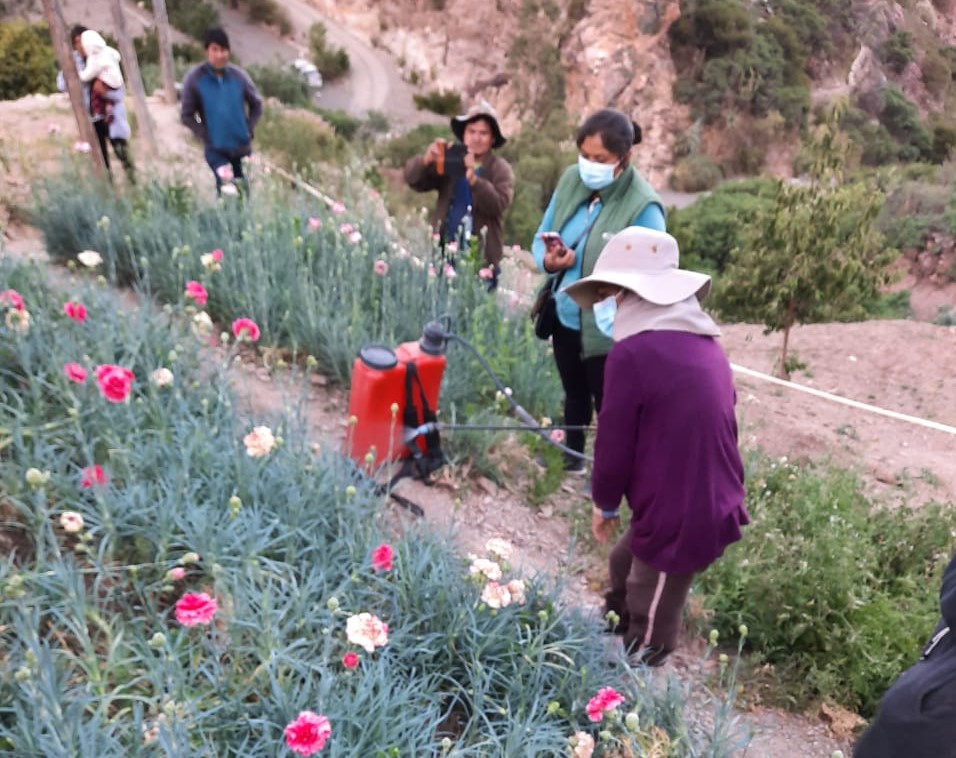Organizations from Brazil, Bolivia, Colombia, Ecuador, Guatemala, Honduras, Mexico and the Dominican Republic shared their experiences during a regional meeting organized by the project.

San Jose, 16 December 2020 (IICA). More than 20 climate-smart sustainable farming practices were shared during the first meeting of initiatives carried out within the framework of the “Knowledge Management for the Adaptation of Family Farming to Climate Change” (INNOVA-AF) project, which is implemented by the Inter-American Institute for Cooperation on Agriculture (IICA) with funding from the International Fund for Agricultural Development (IFAD).
Among other things, the initiatives shared rainwater harvesting models, methods for the treatment and use of domestic wastewater for crop production, agroecological practices and technologies for arid and semi-arid areas.
The practices and experiences being promoted in Brazil, Bolivia, Colombia, Ecuador, Guatemala, Honduras, Mexico and the Dominican Republic form part of 11 projects implemented within the framework of the competitive fund that INNOVA AF launched in 2019.
The purpose of the first regional meeting, held virtually, was to strengthen coordination between these subprojects and initiatives, as well as foster knowledge-sharing. The event provided an opportunity to share the approaches, methodologies and tools that are implemented to transfer these practices to various territories, and that can contribute to strengthening the actions carried out in other countries, particularly in territories that have been hard hit by the pandemic.
Some noteworthy actions include networking strategies with a territorial approach, training opportunities geared towards youth and women leaders, support for the use of digital tools in family farming and contributions to the management of water and soil resources. More than 40 small-scale producer organizations and organizations formed in partnership with farmers in the territories are driving these efforts.
According to Miguel Altamirano, General Coordinator of INNOVA AF, “the knowledge management model we are promoting seeks to capitalize on experiences and share knowledge, including how to put these experiences into practice, identifying success factors, value added, limitations and lessons learned. This, in turn, allows for replicating practices in other territories with similar conditions”.
One of the main results of the virtual meeting was the identification of specific areas of interest among the projects, which would be addressed in future meetings in early 2021. This would allow for supporting the capitalization of experiences and learning about sustainability-related best practices that some organizations are already implementing and that could be scaled up.
Jorge Díaz, of the Alternative Community Commercialization Network (RED COMAL), which implements one of the subprojects in Honduras, commented that this is an opportunity to learn about actions promoted by other subprojects similar to his initiative, such as rainwater harvesting models and family faming projects in Guatemala.
The “Knowledge Management for the Adaptation of Family Farming to Climate Change” (INNOVA-AF) project, implemented by IICA with funding from IFAD, contributes to capitalizing on successful experiences and good practices related to territorial systems of family farming, through the establishment of public-private partnerships and collaborative agreements that allow for scaling up good practices and successful experiences related to the adaptation of family farming to climate change in Latin America and the Caribbean.
About IFAD
IFAD is an international financial institution and specialized United Nations agency that invests in rural populations, empowering them to reduce poverty, increase their food security, improve their nutrition and strengthen their resilience.
More information:
Institutional Communication Division











